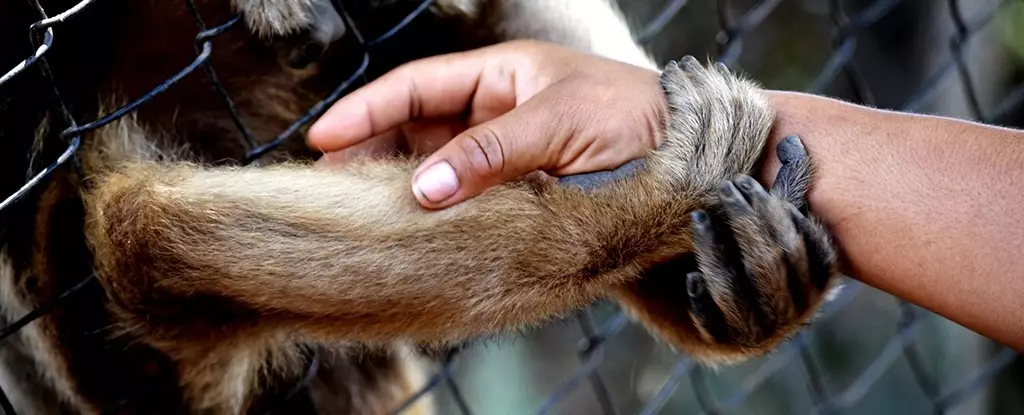The COVID-19 pandemic brought about significant changes in various aspects of life, including the behavior of zoo animals. A study published in 2022 sheds light on how primates, including bonobos, chimpanzees, western lowland gorillas, and olive baboons, reacted to the absence of visitors at zoos during the lockdown period.
During the lockdown period, when zoos were closed to the public, researchers observed interesting changes in the behavior of the primates. The absence of visitors led to alterations in the amount of time the animals spent resting and eating. This highlights the importance of visitor interactions in the lives of zoo animals, as these interactions can have both positive and negative impacts on the animals’ well-being.
As zoos reopened and visitors returned, the researchers noticed further variations in primate behavior. Bonobos and gorillas spent less time alone, indicating a shift in their social interactions in the presence of visitors. Chimpanzees increased their eating and engagement with their enclosures, suggesting a stimulated response to the return of visitors. In contrast, olive baboons exhibited less sexual and dominance behavior and showed a tendency to approach visitor cars more frequently when compared to the period when the park was closed.
It is challenging to determine whether these changes in primate behavior were positive or negative. While the returning visitors seemed to stimulate the chimpanzees and baboons, the disruption caused to the gorillas, who spent less time resting, raises questions about the impact of visitor presence on naturally sedentary animals. The ability of the gorillas to change the parts of their enclosures they frequent suggests their adaptability to environmental stimuli.
The study emphasizes the importance of providing zoo animals with environments that enable them to adapt to changes effectively. The observations made on primate behavior highlight the adaptability of zoo species and underscore the need for ongoing research on the impacts of visitor numbers on animal welfare. Understanding how visitors affect wildlife is crucial for managing zoos and parks in a way that promotes the well-being of the animals.
As the research team continues to explore the effects of visitor numbers on animal behavior, the study suggests the need for broader investigations involving a wider range of species in both zoos and safari parks. Collecting data over an extended period and examining individual differences among animals can provide valuable insights into how zoos can be better designed and operated to support animal welfare.
The study on primate behavior during the COVID-19 pandemic offers valuable insights into the impacts of visitor interactions on zoo animals. By understanding how animals respond to changes in their environment, researchers and zoo professionals can work towards creating spaces that promote the well-being and adaptability of captive wildlife.


Leave a Reply